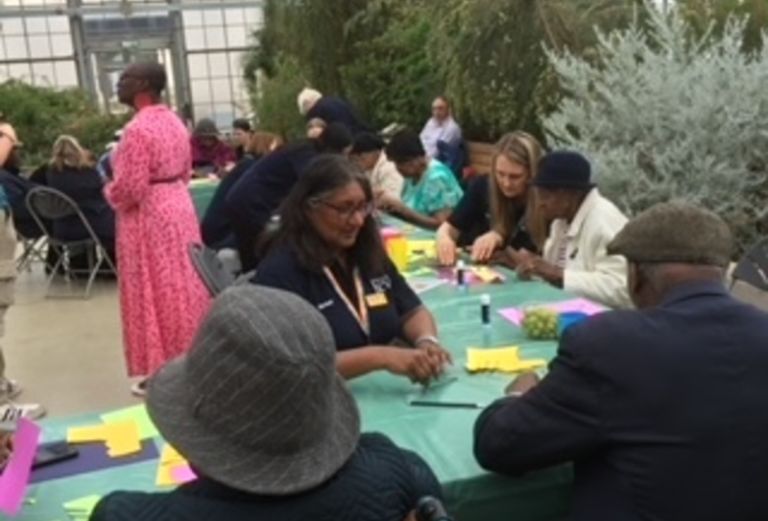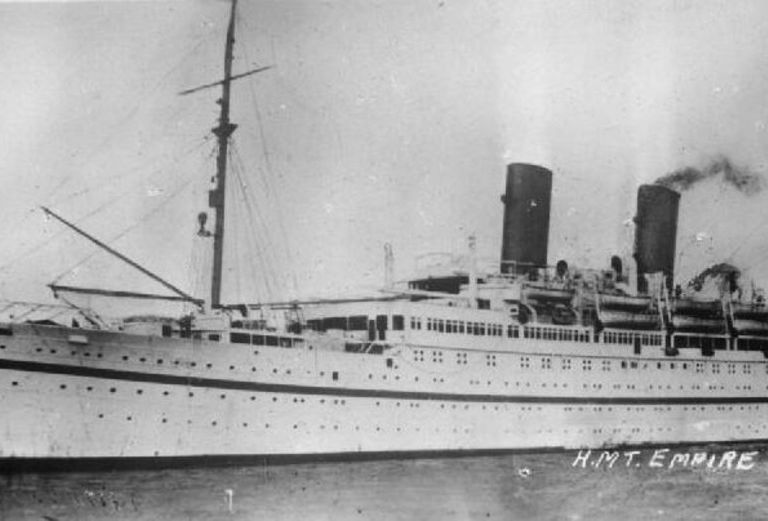
Written by Jazz Browne, CEO of Nubian Life
When talking about the Windrush Generation the context is often narrow and focuses on their arrival in the UK, the racism they experienced and in recent years the appalling Windrush Scandal. While those stories should be told, I think we need to ensure that the voices of our Elders from the Windrush Generation are given a platform to tell their stories.
In the last week, we have had primary school children visit the centre to learn about Windrush from our clients. When asked what they had learnt, one child said they were surprised to learn that not everyone arrived on the Empire Windrush, as most of our clients flew to the UK. Children learnt that some of our clients had established careers as seamstresses, nurses, teachers, police officers and carpenters before coming to the UK. As our parents, they were community advocates and entrepreneurs who brought the traditions of home with them. For example, they were undeterred by UK banks who refused to lend them money, so the Windrush Generation saved deposits for houses using pardner saving schemes.
Through the interviews, we catch glimmers of the strength, determination and tenacity it took this generation to leave their families, land and the Caribbean to come to the UK. Their stories are painful to listen to in some parts, but what shines through is their courage and commitment to making a life in the United Kingdom as they were entitled to do so as British Citizens.

As we continue to put names to faces and hear their stories I am conscious of the range of emotions evoked. One interviewee reflected ‘It’s hard to celebrate when they did us so much wrong’. One daughter watched her mum falter through the interview and stated ‘That’s not my Mum’; I later received an email which said ‘My mum thoroughly enjoyed the experience, although there were moments during the interview Mum seemed preoccupied in her thoughts. When asked she put it down to being selective about what she wanted to say about her past. ‘It’s not everything you can say to strangers.’ Her daughter went on to say ‘Some elders can still be sensitive on the subject, especially about the initial hardship and loneliness of immigrating to cold Britain from the warmth of the Caribbean with no idea about prospects.’
With our partners The Geller Institute for Memory and Aging, the University of West London and Fulham Palace we hope that the stories shared with us as part of ‘In Celebration of Our Elders’ will begin to highlight the legacy of Windrush residents in Hammersmith and Fulham. They worked hard and endured many hardships but were resilient and in the face of adversity sought out ways to improve life in the UK by developing their own services. Pioneers such as Connie Marks MBE, BEM, Bishop Clinton Sealy, Randolph Beresford MBE, BEM – to name a few – set up Hammersmith & Fulham’s Black Senior Citizens, after being made to feel unwelcome when attempting to join mainstream services; 30+ years later the legacy of that collective action is Nubian Life. Hammersmith & Fulham Black Senior Citizens became Nubian Life on 19th July 1996.
In pulling together this Celebration, I have learnt and reflected a lot and acknowledge that there’s more work to be done to truly celebrate Windrush; we must tell the truth about the Windrush journey and recognise that our Elders have wounds that still have not healed in 75 years. We need to move from one day of celebration to having Windrush on the curriculum in schools and recognised as Black British History 365.
Coming to the end of my reflection, I have decided to express my immense pride in our Elders, their contributions and their legacy. As a child of the Windrush Generation thank you for paving the way for us.
